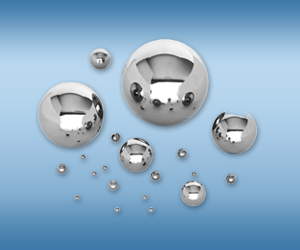Tungsten Carbide Balls

View Sizes, Grades, and Tolerance
Profile
High hardness and dimensional stability make tungsten carbide balls the preferred choice for precision hydraulic valves, high-load bearings, inertial navigation systems, ball screws, linear bearings in slideways, gauging and checking instruments, and meters. Tungsten carbide balls are also used for ballizing, to work-harden and improve fretting fatigue strength.
Characteristics
Tungsten carbide balls are ideal for applications where extreme hardness must be accompanied by high resistance to wear and impact. They are well-suited to elevated temperatures, corrosion, humidity, abrasion, and poor lubrication conditions. Hartford Technologies’ standard material is made of 94% tungsten carbide and 6% cobalt binder, the industry code is C2 tungsten carbide.
Mechanical Properties
- Ultimate tensile strength 220,000 psi
- Ultimate compressive strength 643,000 psi
- Transverse rupture strength 228,000 psi
- Modulus of elasticity 98,000,000
- Density (approx.) 0.54 lb./in.
- Specific gravity 14.85-15.5
- Electrically conductive slightly, magnetic
- Low thermal expansion rate
Hardness
Rockwell A 90.5-91.5
Tungsten carbide balls from Hartford are tested using a gauge that is accurate to ±0.0001 (grades 10, 15 and 25) to insure conformance with ABMA standards, as well as individual customer quality requirements.
Hartford manufactures tungsten carbide balls in 10 standard grades, in two facilities that allow fast shipment to destinations anywhere in North America or Asia. We have substantial custom manufacturing capacity as well.
Let us quote your next application – request a consultation with our tungsten carbide ball manufacturing specialists.






